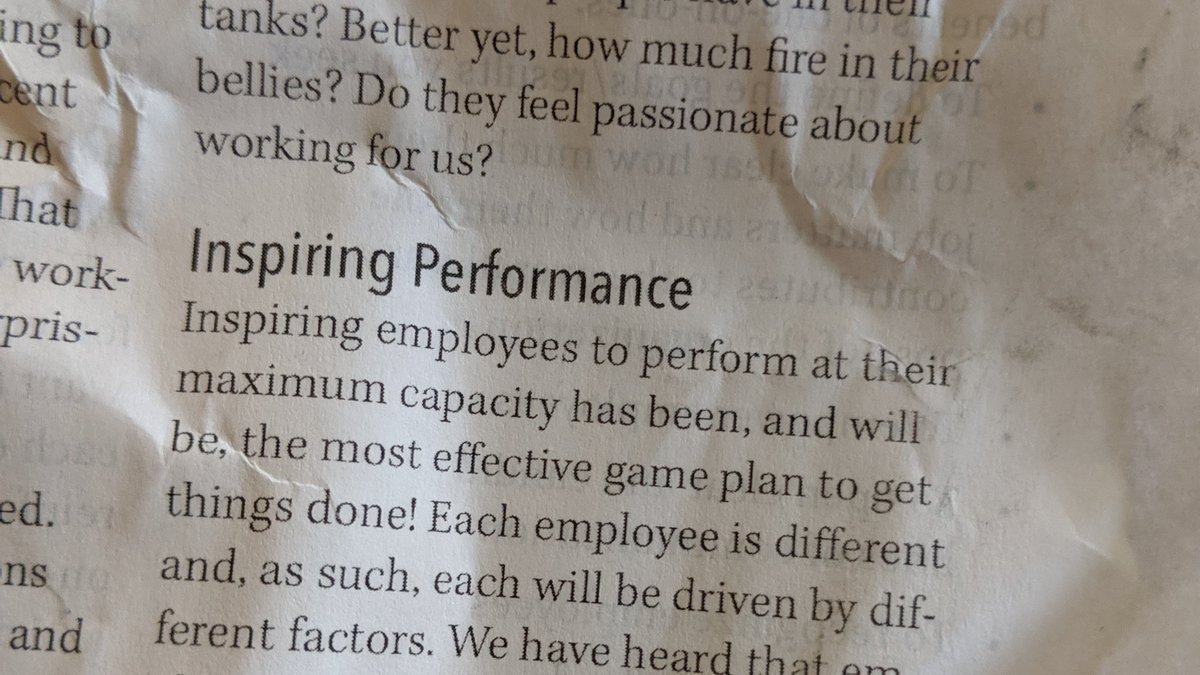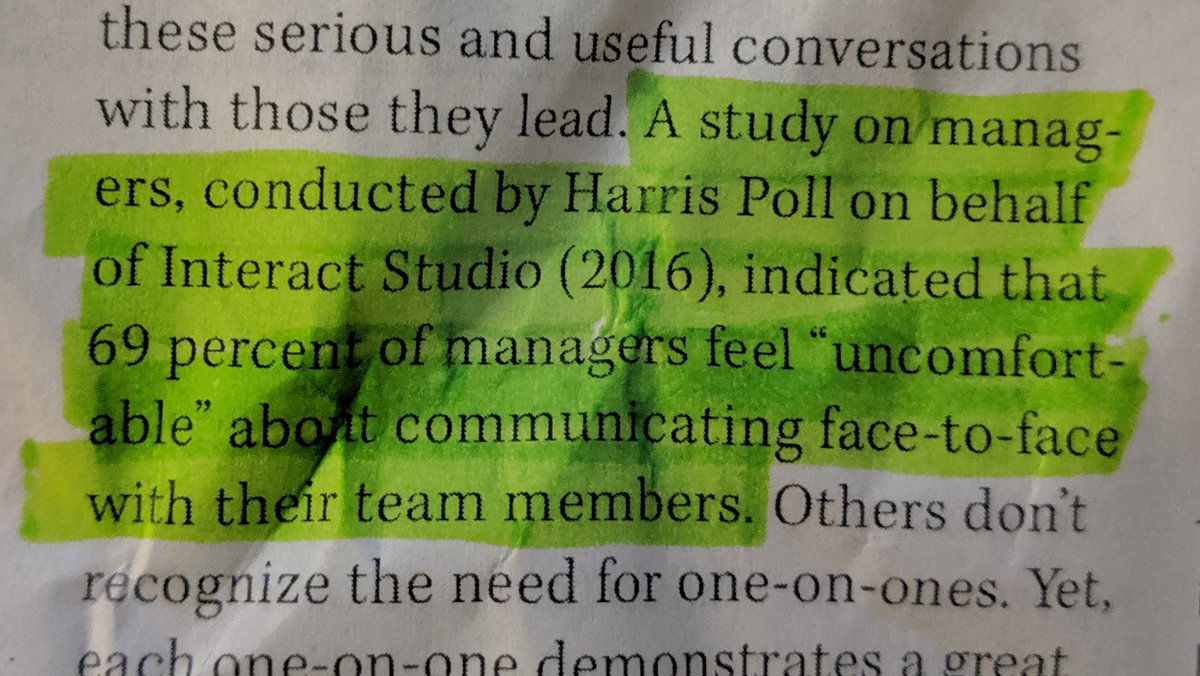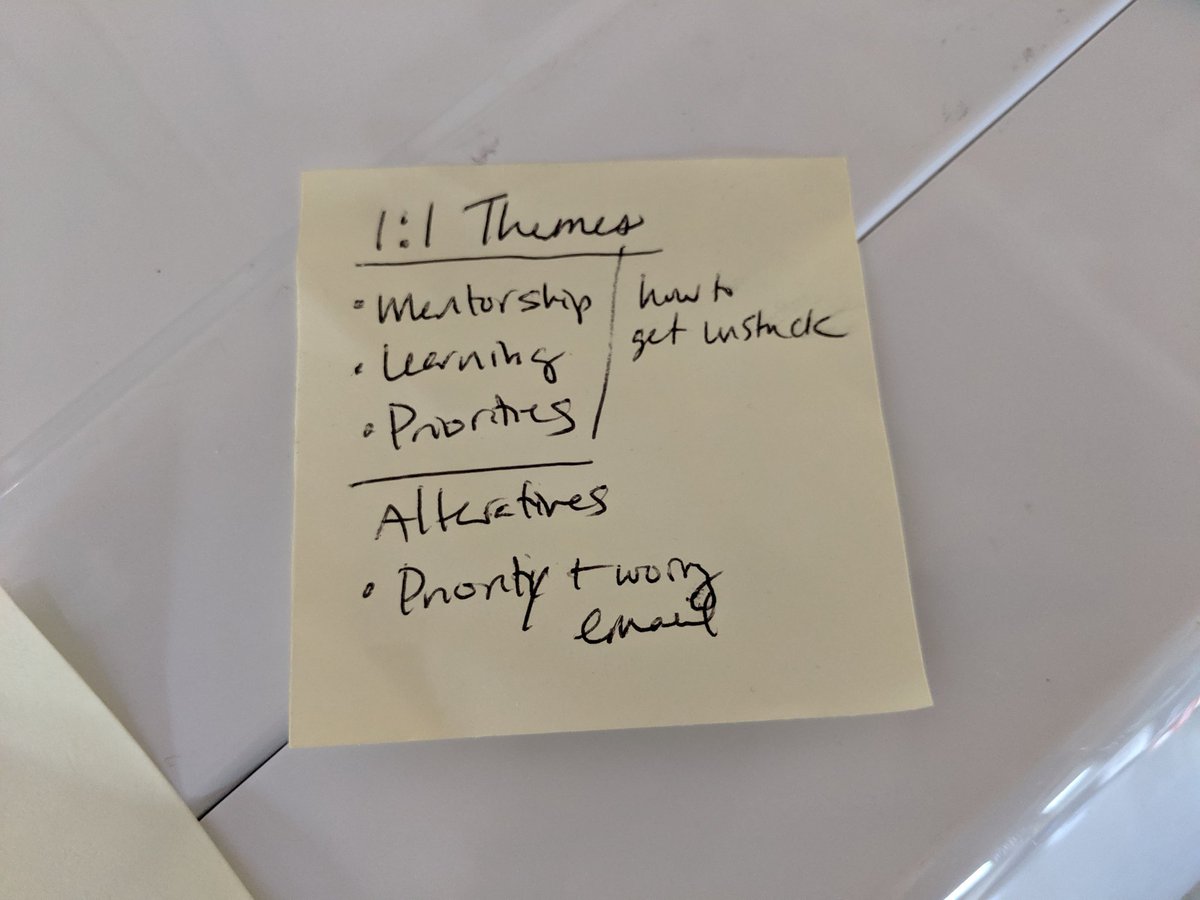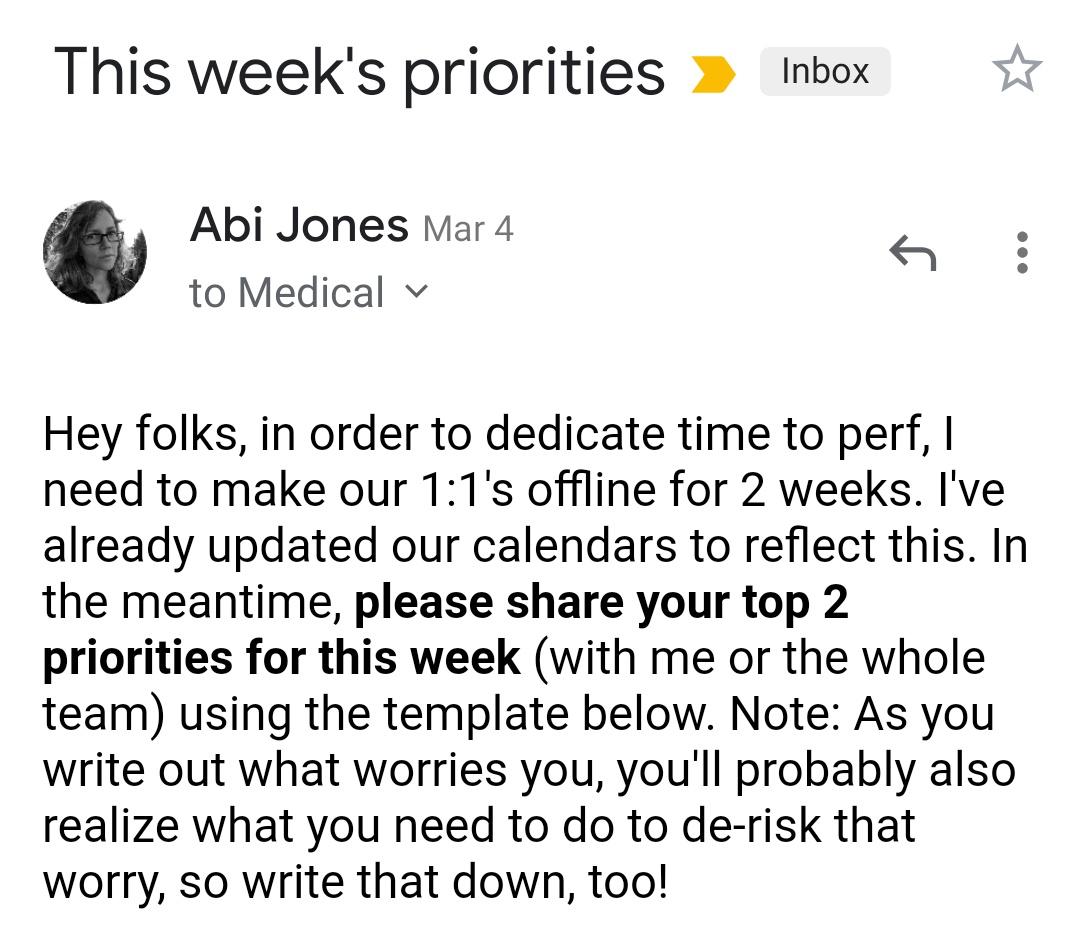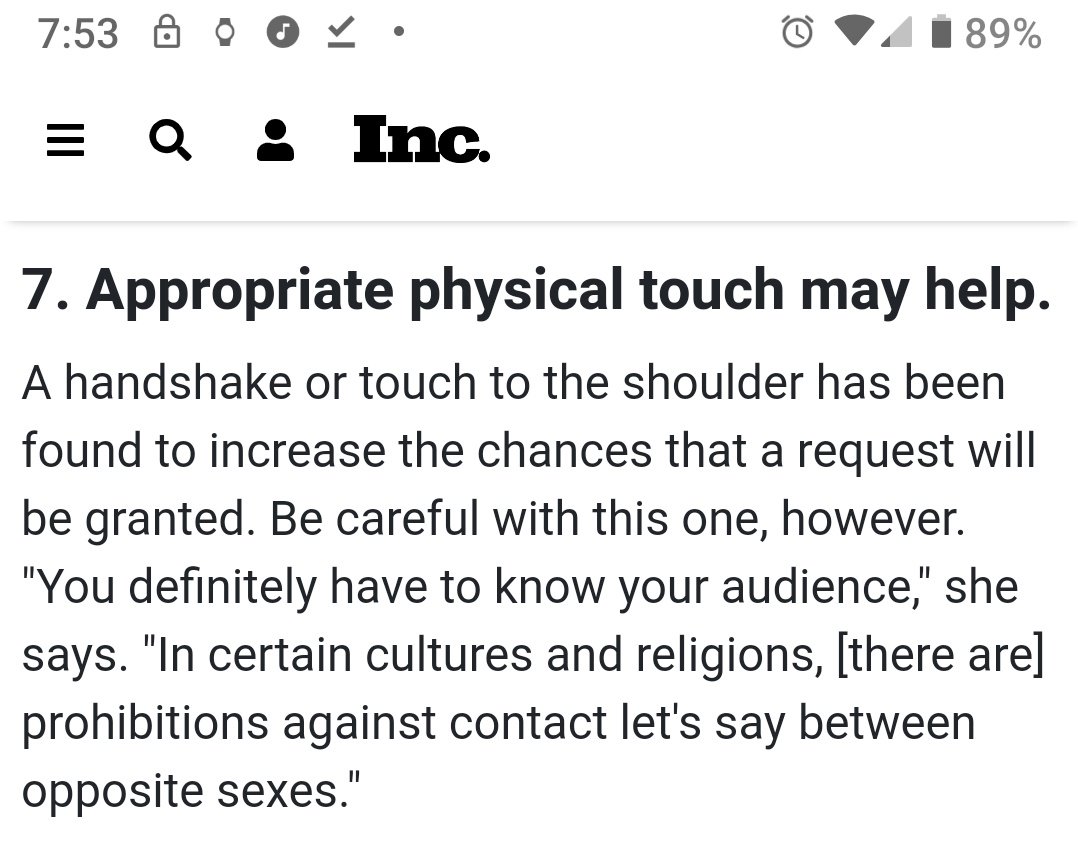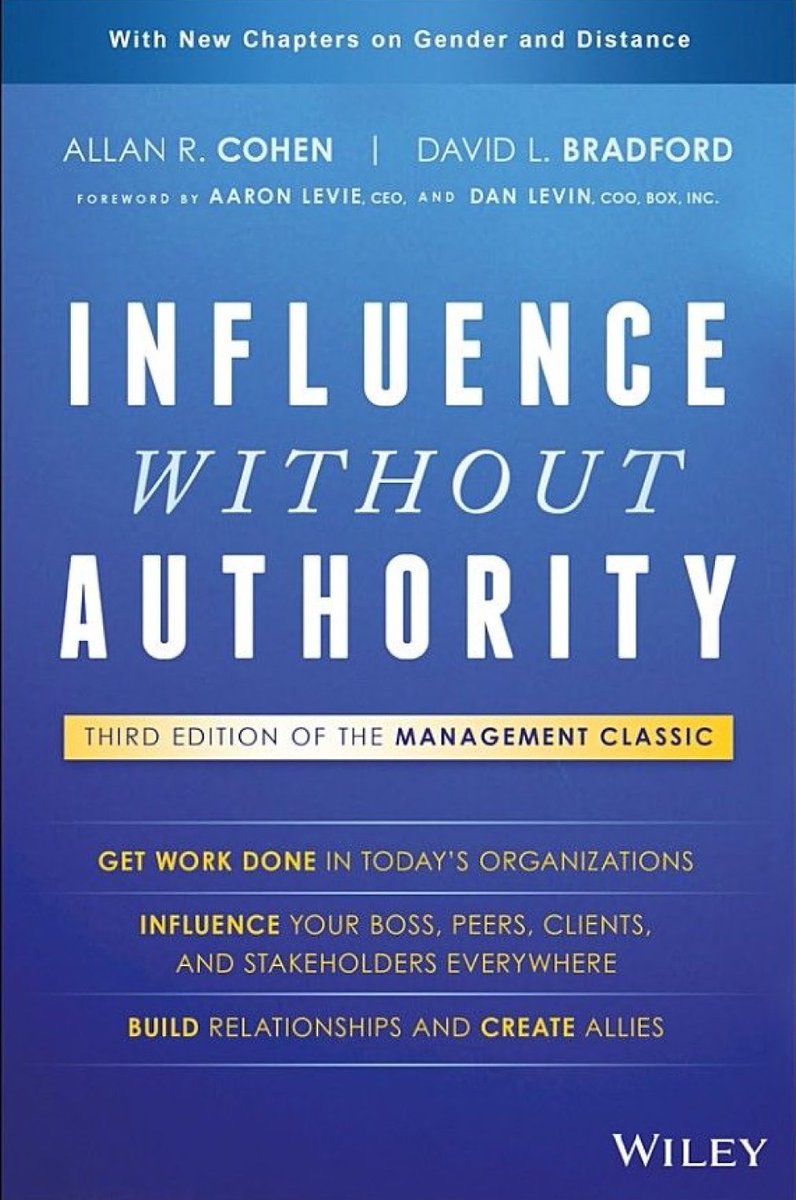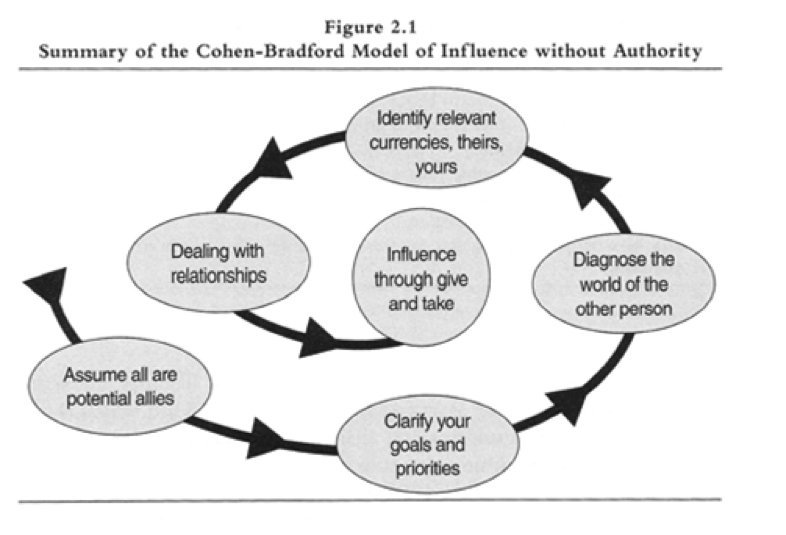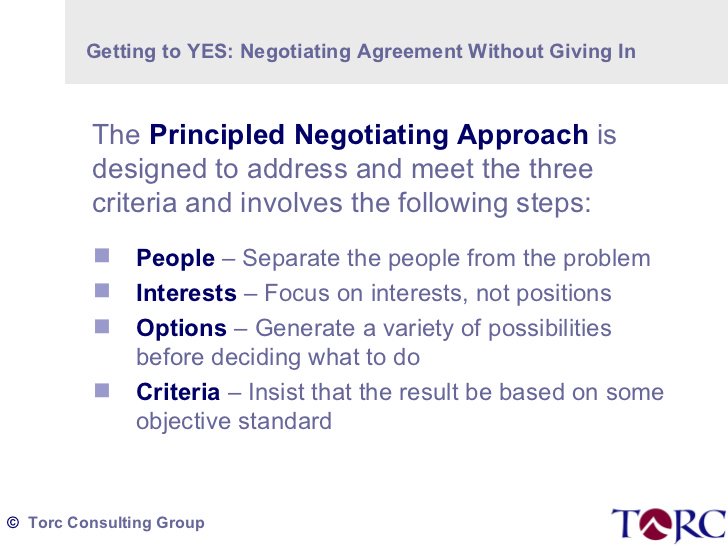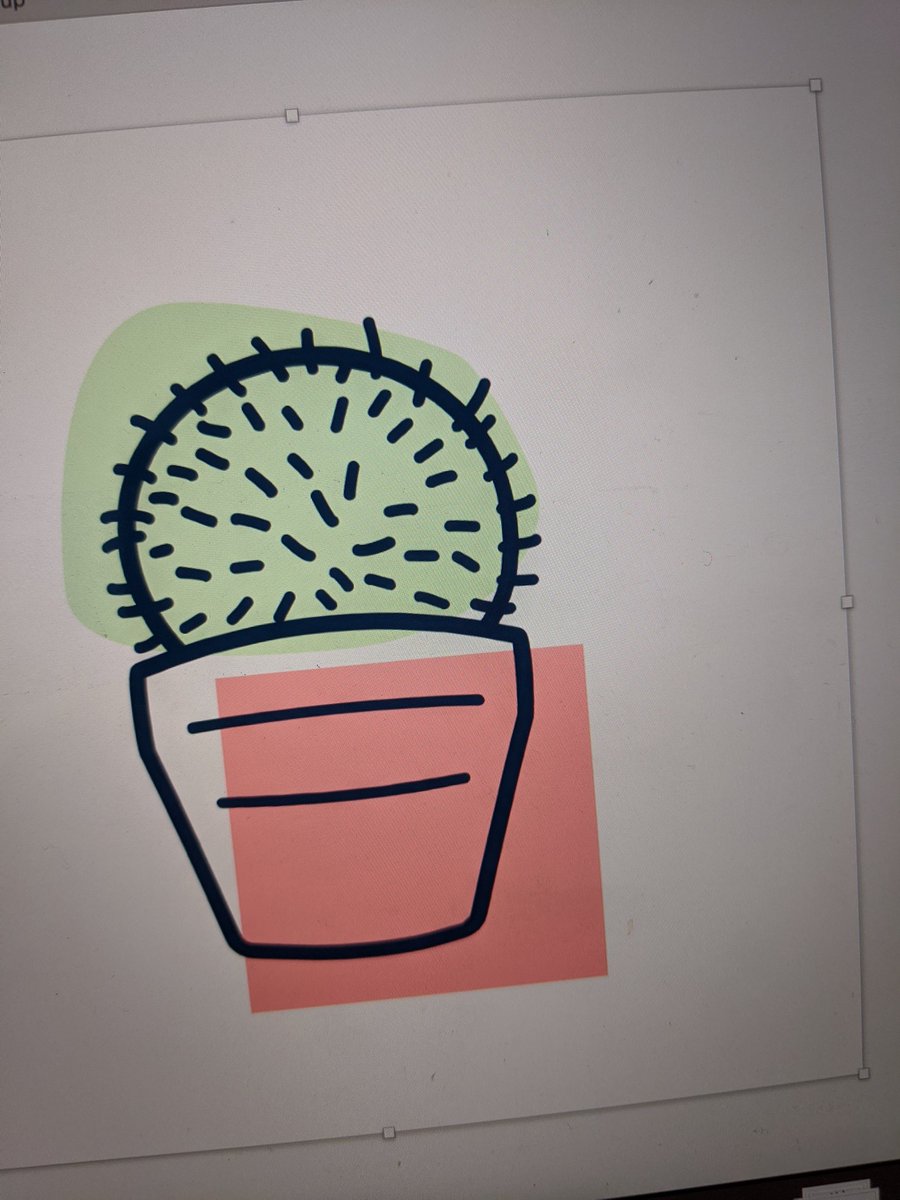I didn& #39;t really do 1:1& #39;s before this.
Oh sure, I had 1 manager that one time who did biweekly 1:1& #39;s for about 6 months. And another who would sometimes just...not show up to them?
But mostly...no 1:1& #39;s.
Oh sure, I had 1 manager that one time who did biweekly 1:1& #39;s for about 6 months. And another who would sometimes just...not show up to them?
But mostly...no 1:1& #39;s.
When I started my new role, I asked for advice from a lot of folks.
@livlab recommended @managertools
*Everyone* recommended @lara_hogan& #39;s work
Others mentioned books like, First 90 Days, Debugging Teams, @skamille& #39;s Manager& #39;s Path, and all those Lencioni books.
@livlab recommended @managertools
*Everyone* recommended @lara_hogan& #39;s work
Others mentioned books like, First 90 Days, Debugging Teams, @skamille& #39;s Manager& #39;s Path, and all those Lencioni books.
All of the resources I read and listened to mentioned 1:1& #39;s as an important tool.
So I set up:
 https://abs.twimg.com/emoji/v2/... draggable="false" alt="☑️" title="Ballot box with check" aria-label="Emoji: Ballot box with check"> Weekly 1:1& #39;s with my team
https://abs.twimg.com/emoji/v2/... draggable="false" alt="☑️" title="Ballot box with check" aria-label="Emoji: Ballot box with check"> Weekly 1:1& #39;s with my team
 https://abs.twimg.com/emoji/v2/... draggable="false" alt="☑️" title="Ballot box with check" aria-label="Emoji: Ballot box with check"> Biweekly 1:1& #39;s with my manager
https://abs.twimg.com/emoji/v2/... draggable="false" alt="☑️" title="Ballot box with check" aria-label="Emoji: Ballot box with check"> Biweekly 1:1& #39;s with my manager
 https://abs.twimg.com/emoji/v2/... draggable="false" alt="☑️" title="Ballot box with check" aria-label="Emoji: Ballot box with check"> Biweekly 1:1& #39;s with my PM/Eng peers (Senior Managers)
https://abs.twimg.com/emoji/v2/... draggable="false" alt="☑️" title="Ballot box with check" aria-label="Emoji: Ballot box with check"> Biweekly 1:1& #39;s with my PM/Eng peers (Senior Managers)
 https://abs.twimg.com/emoji/v2/... draggable="false" alt="☑️" title="Ballot box with check" aria-label="Emoji: Ballot box with check"> Monthly 1:1& #39;s with my UX peers (senior folks on other teams)
https://abs.twimg.com/emoji/v2/... draggable="false" alt="☑️" title="Ballot box with check" aria-label="Emoji: Ballot box with check"> Monthly 1:1& #39;s with my UX peers (senior folks on other teams)
So I set up:
I also set up two lunches a week as "bookable" by anyone at Google.*
That& #39;s how I get to meet with a good mix of other folks.
*I& #39;m an introvert and verbally asking people if they want to get lunch takes way too much effort. Like...I don& #39;t know why, but it is HARD.
That& #39;s how I get to meet with a good mix of other folks.
*I& #39;m an introvert and verbally asking people if they want to get lunch takes way too much effort. Like...I don& #39;t know why, but it is HARD.
So, what I& #39;m reflecting on now is:
What& #39;s been good about 1:1& #39;s?
What could be better?
What are 1:1& #39;s good for?
What are they terrible for?
How do 1:1& #39;s differ when you& #39;re the other person& #39;s:
- Manager
- Direct report
- Peer
What& #39;s been good about 1:1& #39;s?
What could be better?
What are 1:1& #39;s good for?
What are they terrible for?
How do 1:1& #39;s differ when you& #39;re the other person& #39;s:
- Manager
- Direct report
- Peer
Part of me can& #39;t believe that I spend about 2 work days a week meeting with individuals.
And part of me is sad that I only spend 30 minutes a week 1:1 with each of my team members.
And part of me is sad that I only spend 30 minutes a week 1:1 with each of my team members.
(I also read many Management lit & HBR articles about 1:1& #39;s. Cringe.)
Things I& #39;ve learned:
1. Context is everything.
The practices I learned and use every days are great at big, "mature" companies with a strong bent toward developing people and somewhat independent workforces.
It& #39;s entirely different at a startup, agency, with contractors, etc.
1. Context is everything.
The practices I learned and use every days are great at big, "mature" companies with a strong bent toward developing people and somewhat independent workforces.
It& #39;s entirely different at a startup, agency, with contractors, etc.
2. (um, these are not in any order)
Good one-on-ones are like literally everything in life: they take practice. It& #39;s going to be awkward at first, but of you meet regularly, it& #39;ll start to feel normal.
Good one-on-ones are like literally everything in life: they take practice. It& #39;s going to be awkward at first, but of you meet regularly, it& #39;ll start to feel normal.
3. Thinking about and planning for 1:1& #39;s is a job for both a manager and their direct report.
You should both have expectations for the conversation.
You should both have expectations for the conversation.
3 cont... Even if you& #39;re not managing someone, @skamille& #39;s book gives you an idea of what to expect from a good manager. https://www.amazon.com/Managers-Path-Leaders-Navigating-Growth/dp/1491973897">https://www.amazon.com/Managers-...
4. Your role differs from meeting to meeting, so it helps to group skip-level, direct report, peer, and manager 1:1& #39;s
@lara_hogan& #39;s calendar defrag concept can help with thinking about roles and mindsets https://larahogan.me/blog/manager-energy-drain/">https://larahogan.me/blog/mana...
@lara_hogan& #39;s calendar defrag concept can help with thinking about roles and mindsets https://larahogan.me/blog/manager-energy-drain/">https://larahogan.me/blog/mana...
5. I prefer doing all of my team 1:1& #39;s on Monday afternoon and Tuesday morning/early pm.
It gives people a chance to get the week started before we chat and it gives us time (the rest of the week) to work on what we discuss.
Friday afternoon 1:1& #39;s = terrible.
It gives people a chance to get the week started before we chat and it gives us time (the rest of the week) to work on what we discuss.
Friday afternoon 1:1& #39;s = terrible.
5 cont... There are some management blogs that try to make #FeedbackFriday a thing
Don& #39;t do that to people.
Friday is a good time for self-reflection, but not a great time for developmental (aka stuff to learn/grow in) feedback.
Why: there& #39;s no opportunity to practice or plan
Don& #39;t do that to people.
Friday is a good time for self-reflection, but not a great time for developmental (aka stuff to learn/grow in) feedback.
Why: there& #39;s no opportunity to practice or plan
5 cont& #39;d, DESIGNER PERSPECTIVE
DON& #39;T DO CRITS ON FRIDAYS
what are you doing? trying to make your team work on the weekend?
DON& #39;T DO CRITS ON FRIDAYS
what are you doing? trying to make your team work on the weekend?
6. The 1:1 should be
2/3 their (your report& #39;s) stuff
1/3 your (manager) stuff
As a manager, you& #39;re mostly there to listen.
2/3 their (your report& #39;s) stuff
1/3 your (manager) stuff
As a manager, you& #39;re mostly there to listen.
7. When you& #39;re not listening, one thing you& #39;ll do is provide feedback.
Telling people what they did a great job on is the *most important* form of feedback.
The SBI model helps me make feedback useful:
S - Situation
B - Behavior
I - Impact
Telling people what they did a great job on is the *most important* form of feedback.
The SBI model helps me make feedback useful:
S - Situation
B - Behavior
I - Impact
e.g.
Situation: Great job facilitating that team mtg on hiring, their priorities weren& #39;t well-defined.
Behavior: Getting the team to focus on immediate needs by charting their plans got them to agreement.
Impact: Now we& #39;ll hire for a strong research foundation on the product.
Situation: Great job facilitating that team mtg on hiring, their priorities weren& #39;t well-defined.
Behavior: Getting the team to focus on immediate needs by charting their plans got them to agreement.
Impact: Now we& #39;ll hire for a strong research foundation on the product.
(you& #39;re not supposed to lead with "great job" but putting the praise at the end makes me feel like psychopath)
Anyways...
You probably practice giving negative feedback ALL THE TIME.
Try giving more positive feedback.
Anyways...
You probably practice giving negative feedback ALL THE TIME.
Try giving more positive feedback.
8. Being strengths-oriented is a radical departure from how school/business/workplaces/performance systems work today.
It& #39;s *hard*
Here& #39;s an intro: What Managers Get Wrong About Feedback https://play.google.com/music/m/Dcyktp5wldjyzomsogo47zz3ote?t=679_What_Managers_Get_Wrong_About_Feedback_-_HBR_IdeaCast">https://play.google.com/music/m/D...
It& #39;s *hard*
Here& #39;s an intro: What Managers Get Wrong About Feedback https://play.google.com/music/m/Dcyktp5wldjyzomsogo47zz3ote?t=679_What_Managers_Get_Wrong_About_Feedback_-_HBR_IdeaCast">https://play.google.com/music/m/D...
9. But strengths-based leadership is not...new.
Peter Drucker discussed it back in 1967. When typing pools were a thing. Mad Men Season 6, basically. https://medium.com/power-books/the-effective-executive-by-peter-drucker-9b84c62bd94c">https://medium.com/power-boo...
Peter Drucker discussed it back in 1967. When typing pools were a thing. Mad Men Season 6, basically. https://medium.com/power-books/the-effective-executive-by-peter-drucker-9b84c62bd94c">https://medium.com/power-boo...
10. Your team needs mentors.
It& #39;s not you.
If you& #39;re their manger, you& #39;re not a good mentor. Your priorities are different. It& #39;s okay.
Recognize it and help them find mentors. http://www.themuse.com/advice/your-boss-or-your-mentor-why-you-should-know-the-difference">https://www.themuse.com/advice/yo...
It& #39;s not you.
If you& #39;re their manger, you& #39;re not a good mentor. Your priorities are different. It& #39;s okay.
Recognize it and help them find mentors. http://www.themuse.com/advice/your-boss-or-your-mentor-why-you-should-know-the-difference">https://www.themuse.com/advice/yo...
11. Sometimes (a lot of the time) it helps to talk to someone outside your office.
But did you know that less than 10% of employees use EAPs (Employee Assistance Programs?)
Services like Empower Work are here for you. https://www.empowerwork.org/ ">https://www.empowerwork.org/">...
But did you know that less than 10% of employees use EAPs (Employee Assistance Programs?)
Services like Empower Work are here for you. https://www.empowerwork.org/ ">https://www.empowerwork.org/">...
12. Yikes. https://twitter.com/elisefoley/status/1129371470835138563">https://twitter.com/elisefole...
13. Each week our 1:1& #39;s have a theme.
A theme helps me discuss mentors or prioritization with people who *don& #39;t* ask, not just people who are already thinking about it.
The theme isn& #39;t the focus of the 1:1, it& #39;s an opening for future conversations.
A theme helps me discuss mentors or prioritization with people who *don& #39;t* ask, not just people who are already thinking about it.
The theme isn& #39;t the focus of the 1:1, it& #39;s an opening for future conversations.
14. Sometimes things come up at work (performance review season, walkouts, illness) so I ask the team to update each other via email.
The goal is not "getting an update"
The goal is to have someone reflect on barriers for their priorities.
The goal is not "getting an update"
The goal is to have someone reflect on barriers for their priorities.
14b. Here& #39;s the template:
1. Priority Name
- What I need to do:
- What worries me:
2. Priority Name
- What I need to do:
- What worries me:
1. Priority Name
- What I need to do:
- What worries me:
2. Priority Name
- What I need to do:
- What worries me:
15. Discuss expectations for work regularly and openly.
Only half of people know what& #39;s expected of them at work. This helps explain why performance review season is terrible for so many people. https://www.gallup.com/workplace/236567/obsolete-annual-reviews-gallup-advice.aspx">https://www.gallup.com/workplace...
Only half of people know what& #39;s expected of them at work. This helps explain why performance review season is terrible for so many people. https://www.gallup.com/workplace/236567/obsolete-annual-reviews-gallup-advice.aspx">https://www.gallup.com/workplace...
Reviewing my list of my recurring 1:1& #39;s
I& #39;m reviewing my 1:1& #39;s list because the TL & PM for a team want to start meeting my regularly with me and my first reaction (in my brain) was & #39;No, I like y& #39;all but I don& #39;t have time for that& #39; which is TERRIBLE because we are all trying to make our teams great.
16. So I& #39;m looking for feedback on 1:1& #39;s from my peers - what are they looking for? What& #39;s helpful? What& #39;s not? What sort of cadence makes sense?
I& #39;m putting together a non-anonymous survey that I& #39;ll have to hound people to complete so I can figure out the best way to meet.
I& #39;m putting together a non-anonymous survey that I& #39;ll have to hound people to complete so I can figure out the best way to meet.
(this is also why I& #39;m sooo excited that I just opened up a new role for a UX Research Manager on our team. I need a partner in all of this.)
17. Peer 1:1& #39;s
I meet with my Eng and PM peers (other managers) biweekly.
They& #39;re the people who literally started our org, so the meetings are a combination of updates/feedback, org strategy, and collaboration (what are we doing together).
I meet with my Eng and PM peers (other managers) biweekly.
They& #39;re the people who literally started our org, so the meetings are a combination of updates/feedback, org strategy, and collaboration (what are we doing together).
18. I have peer 1:1& #39;s with other UXers: research and design mgrs in adjacent teams.
These 1:1& #39;s focus on the specific issues/needs we have as managers of UX teams.
- Collaboration
- Team effectiveness
- Positioning team within larger org
- People stuff
- Support
These 1:1& #39;s focus on the specific issues/needs we have as managers of UX teams.
- Collaboration
- Team effectiveness
- Positioning team within larger org
- People stuff
- Support
19. And then there are 1:1& #39;s I have with my literal co-managers...folks I share reports with via a dotted-line.
More on that: https://www.global-integration.com/glossary/dotted-line-reporting/">https://www.global-integration.com/glossary/...
More on that: https://www.global-integration.com/glossary/dotted-line-reporting/">https://www.global-integration.com/glossary/...
20. Where I struggle:
Communicating at the right quantity and frequency with the clinical area Eng & PM leads that partner with UXers from my team.
Communicating at the right quantity and frequency with the clinical area Eng & PM leads that partner with UXers from my team.
20, cont
I want my teams (the Design & Research pairs) to be primary with those PMs and TLs
I don& #39;t want to be a hub for communication/decisions.
I do want to provide the support necessary to make great things and have good relationships.
I want my teams (the Design & Research pairs) to be primary with those PMs and TLs
I don& #39;t want to be a hub for communication/decisions.
I do want to provide the support necessary to make great things and have good relationships.
(side note)
21. Today, while chatting with a fellow Little league parent, I mentioned that I was tired from biking and from doing career conversations (they& #39;re an hour! There& #39;s prep!)
And this scientist with a lab was like "hmm...I should probably do that with postdocs"
21. Today, while chatting with a fellow Little league parent, I mentioned that I was tired from biking and from doing career conversations (they& #39;re an hour! There& #39;s prep!)
And this scientist with a lab was like "hmm...I should probably do that with postdocs"
And then he told me a story about his famous advisor who *knew* that one of the postdocs was poisoning his team and yet this guy& #39;s mantra was "I don& #39;t have time for the things that are going right, let alone the things going wrong."
Y& #39;all
Academia is different because there& #39;s a huge focus on solo work.
But if you make software, you probably don& #39;t do it alone. You& #39;re part of a team. And being a team is what makes you successful.
And when there are failures…who& #39;s responsible? https://www.inc.com/ron-gibori/great-leaders-take-blame-pass-along-credit.html">https://www.inc.com/ron-gibor...
But if you make software, you probably don& #39;t do it alone. You& #39;re part of a team. And being a team is what makes you successful.
And when there are failures…who& #39;s responsible? https://www.inc.com/ron-gibori/great-leaders-take-blame-pass-along-credit.html">https://www.inc.com/ron-gibor...
22.
Biweekly peer 1:1& #39;s with other leads are learning sessions and planning sessions.
We walk through org strategy and how to shape the org for executing on that strategy.
- Priorities
- Staffing
- Collaboration across orgs
Biweekly is enough time that STUFF HAS HAPPENED
Biweekly peer 1:1& #39;s with other leads are learning sessions and planning sessions.
We walk through org strategy and how to shape the org for executing on that strategy.
- Priorities
- Staffing
- Collaboration across orgs
Biweekly is enough time that STUFF HAS HAPPENED
A guide to help you work with (and talk to) the PM on your team https://medium.com/the-year-of-the-looking-glass/what-to-expect-from-pms-e9750ec09bbf">https://medium.com/the-year-...
Part 2 https://medium.com/the-year-of-the-looking-glass/what-to-expect-from-pms-part-2-191a89b42d7d">https://medium.com/the-year-...
Peer 1:1& #39;s are about relationship building *and* leveraging the relationship to get stuff done
(Which in turn helps build your relationship)
How to work with engineers: https://medium.com/the-year-of-the-looking-glass/how-to-work-with-engineers-a3163ff1eced">https://medium.com/the-year-...
(Which in turn helps build your relationship)
How to work with engineers: https://medium.com/the-year-of-the-looking-glass/how-to-work-with-engineers-a3163ff1eced">https://medium.com/the-year-...
If you& #39;re a designer?
Well, this is one way people might try to work with you...by thinking about...people.
Except for the "would gladly give up nights and weekends just to sit together and make stuff happen" part.
No. Just...no. https://medium.com/the-year-of-the-looking-glass/how-to-work-with-designers-6c975dede146">https://medium.com/the-year-...
Well, this is one way people might try to work with you...by thinking about...people.
Except for the "would gladly give up nights and weekends just to sit together and make stuff happen" part.
No. Just...no. https://medium.com/the-year-of-the-looking-glass/how-to-work-with-designers-6c975dede146">https://medium.com/the-year-...
23. Peer 1:1& #39;s are a great space for hatching schemes.
1. Have an idea that requires more than 1 person to get it done
2. Convince your peer to do it with you (might take multiple 1:1& #39;s to do this)
3. Use 1:1& #39;s to check in on progress and continually align on scheme
1. Have an idea that requires more than 1 person to get it done
2. Convince your peer to do it with you (might take multiple 1:1& #39;s to do this)
3. Use 1:1& #39;s to check in on progress and continually align on scheme
23 cont
How do you convince other people to do stuff? First, most advice about this on the Internet is just fucking terrible.
Don& #39;t touch people.
Just don& #39;t.
How do you convince other people to do stuff? First, most advice about this on the Internet is just fucking terrible.
Don& #39;t touch people.
Just don& #39;t.
24. If you want people to do things, without bossing them into it, you are doing *influencing*
This is professional driver on an enclosed track sort of stuff, so let& #39;s break it down.
This is professional driver on an enclosed track sort of stuff, so let& #39;s break it down.
24a. Most influencing advice hails back to the Cohen-Bradford model because they& #39;re the dudes who wrote the 1989 book "Influence without Authority"
The core concept is "reciprocity"
The core concept is "reciprocity"
24b.
All of the diagrams in the book are bad and whoever approved them should feel bad.
There is no additional meaning created by this being a diagram vs a list.
But the ideas are good! So...
All of the diagrams in the book are bad and whoever approved them should feel bad.
There is no additional meaning created by this being a diagram vs a list.
But the ideas are good! So...
25. I& #39;m not going to get deep into these models in a 1:1& #39;s thread, but what& #39;s going to save you time as a manager is:
+ Learning these models
+ Listening to people
+ Knowing where they/you are in the right model
+ Applying skills (you do it or they do it) to resolve issues
+ Learning these models
+ Listening to people
+ Knowing where they/you are in the right model
+ Applying skills (you do it or they do it) to resolve issues
26. Pattern-matching gone wrong
You know how I said you& #39;re going to get good at models and pattern-matching and you& #39;re going to solve everyone& #39;s problems?
That& #39;s not exactly how it works
You know how I said you& #39;re going to get good at models and pattern-matching and you& #39;re going to solve everyone& #39;s problems?
That& #39;s not exactly how it works
26b. You& #39;re going to get good at models and pattern-matching and then you& #39;re just going to shut up.
26c. Be the rubber duck
26d. For all the non-software people: saying your problems out loud makes you contextualize them and engages new parts of your brain.
Problem solved. https://litemind.com/solve-your-problems-simply-by-saying-them-out-loud/">https://litemind.com/solve-you...
Problem solved. https://litemind.com/solve-your-problems-simply-by-saying-them-out-loud/">https://litemind.com/solve-you...
Oh Captain, my Captain
27. I do this all the time. Four 1:1& #39;s in a day is *a lot* of eye contact.
Also good: looking at something together, whiteboarding together. Whew.
https://twitter.com/Nicole_Cliffe/status/1149426798842662912?s=19">https://twitter.com/Nicole_Cl...
Also good: looking at something together, whiteboarding together. Whew.
https://twitter.com/Nicole_Cliffe/status/1149426798842662912?s=19">https://twitter.com/Nicole_Cl...
28. This month, lots of 1:1& #39;s with the team involved discussing relationships.
1:1& #39;s are for building a relationship.
That& #39;s job #1 https://twitter.com/jonesabi/status/1149838381943148544?s=19">https://twitter.com/jonesabi/...
1:1& #39;s are for building a relationship.
That& #39;s job #1 https://twitter.com/jonesabi/status/1149838381943148544?s=19">https://twitter.com/jonesabi/...
Just starting 1:1& #39;s?
For 2-3 months (8-12 1:1& #39;s) DON& #39;T TRY TO DO STUFF WITH THE 1:1
Just get to know people.
This podcast from 2005 (!!!) will help you think about one way to do 1:1& #39;s
https://www.manager-tools.com/2005/07/the-single-most-effective-management-tool-part-1">https://www.manager-tools.com/2005/07/t...
For 2-3 months (8-12 1:1& #39;s) DON& #39;T TRY TO DO STUFF WITH THE 1:1
Just get to know people.
This podcast from 2005 (!!!) will help you think about one way to do 1:1& #39;s
https://www.manager-tools.com/2005/07/the-single-most-effective-management-tool-part-1">https://www.manager-tools.com/2005/07/t...
30. Peer 1:1& #39;s
This is Month 2 of the peer 1:1& #39;s I& #39;ve been rolling out with fellow leads.
The first month was *terrible*
I had an agenda, but it was just...weird. I wanted to know team priorities, but they hadn& #39;t completed OKRs.
This is Month 2 of the peer 1:1& #39;s I& #39;ve been rolling out with fellow leads.
The first month was *terrible*
I had an agenda, but it was just...weird. I wanted to know team priorities, but they hadn& #39;t completed OKRs.
30b. This month was a transformation in our leads 1:1& #39;s
Why?
We switched from projects to people:
- Are they happy?
- What do they need for growth and development?
- Is the work a good fit?
- How do we help them?
It *completely* changed the conversation.
Why?
We switched from projects to people:
- Are they happy?
- What do they need for growth and development?
- Is the work a good fit?
- How do we help them?
It *completely* changed the conversation.
30c. I learned the hard way that asking people the status of "not done" or super-ambiguous projects makes people sad.
Instead, approach from a shared need and understand how you can help.
Instead, approach from a shared need and understand how you can help.
31. I& #39;m hiring a manager for the first time, so now I need to put my management practice into words (instead of just doing it)
Instead of starting with principles, I& #39;m starting with how our team spends it& #39;s time.
What are our priorities?
Priorities reflect principles.
Instead of starting with principles, I& #39;m starting with how our team spends it& #39;s time.
What are our priorities?
Priorities reflect principles.
There& #39;s a risk to this:
Time https://abs.twimg.com/emoji/v2/... draggable="false" alt="➡️" title="Rightwards arrow" aria-label="Emoji: Rightwards arrow"> Priorities
https://abs.twimg.com/emoji/v2/... draggable="false" alt="➡️" title="Rightwards arrow" aria-label="Emoji: Rightwards arrow"> Priorities  https://abs.twimg.com/emoji/v2/... draggable="false" alt="➡️" title="Rightwards arrow" aria-label="Emoji: Rightwards arrow"> Principles
https://abs.twimg.com/emoji/v2/... draggable="false" alt="➡️" title="Rightwards arrow" aria-label="Emoji: Rightwards arrow"> Principles
What if your time isn& #39;t aligned with your priorities?
What if your priorities aren& #39;t aligned with your principles?
Once you reflect, you can fix those problems. But you need to know they are problems! Reflect!
Time
What if your time isn& #39;t aligned with your priorities?
What if your priorities aren& #39;t aligned with your principles?
Once you reflect, you can fix those problems. But you need to know they are problems! Reflect!
Once you start reflecting on this regularly and working to fix it, then every time you start working on something, you& #39;ll ask yourself:
"Is this important?"*
And if it& #39;s not, do something important instead.
*Has different meanings at work and in the whole rest of life
"Is this important?"*
And if it& #39;s not, do something important instead.
*Has different meanings at work and in the whole rest of life
This feeds in to some of the Skip-level feedback I got from my team.
Skip-level feedback isn& #39;t a 1:1, so it gets a whole thread over here: https://twitter.com/jonesabi/status/1156380288810807297">https://twitter.com/jonesabi/...
Skip-level feedback isn& #39;t a 1:1, so it gets a whole thread over here: https://twitter.com/jonesabi/status/1156380288810807297">https://twitter.com/jonesabi/...
32. Today I& #39;m starting a project I& #39;ve been thinking about for awhile:
A calendar for managers.
I got the idea from...my days of running a frozen food review site.
I had an editorial calendar: turkey dinners ahead if Thanksgiving! Lean Cuisines in January! Etc.
A calendar for managers.
I got the idea from...my days of running a frozen food review site.
I had an editorial calendar: turkey dinners ahead if Thanksgiving! Lean Cuisines in January! Etc.
The idea of the calendar is that I& #39;ll use the ebb and flow of American and Google culture to create, um, synergy, between what& #39;s happening at a company and what I& #39;m focusing on as a manager.
Examples:
- Performance review season
- New Year& #39;s resolutions
- Spring cleaning
Examples:
- Performance review season
- New Year& #39;s resolutions
- Spring cleaning
It& #39;s cheesy, but I think it will work.
Also, I have a new manager starting tomorrow, so I need to start sharing more of my planning in advance of implementing it with my team.
Also, I have a new manager starting tomorrow, so I need to start sharing more of my planning in advance of implementing it with my team.
33. The tricky parts of a 1:1& #39;s calendar:
a) It has to be a dual-track thing so that I can address the different needs of a team if ICs *and* a new manager.
b) I& #39;m going to make it visible to my team and other managers. I want suggestions, feedback, ideas…no improvisation
a) It has to be a dual-track thing so that I can address the different needs of a team if ICs *and* a new manager.
b) I& #39;m going to make it visible to my team and other managers. I want suggestions, feedback, ideas…no improvisation
34. In my external quest to not invent new things, I& #39;m kicking off the 1:1& #39;s calendar with Google& #39;s Oxygen attributes. https://rework.withgoogle.com/blog/the-evolution-of-project-oxygen/">https://rework.withgoogle.com/blog/the-...
35. Today I did "Transition 1:1& #39;s" to properly* transition two of my team members to a new manager.
We discussed what makes for a good (and not-good) 1:1.
*Transition 1:1& #39;s: a thing I made up because it seemed like a good idea
We discussed what makes for a good (and not-good) 1:1.
*Transition 1:1& #39;s: a thing I made up because it seemed like a good idea
Good 1:1& #39;s:
 https://abs.twimg.com/emoji/v2/... draggable="false" alt="👯" title="People with bunny ears" aria-label="Emoji: People with bunny ears"> Relationship-focused
https://abs.twimg.com/emoji/v2/... draggable="false" alt="👯" title="People with bunny ears" aria-label="Emoji: People with bunny ears"> Relationship-focused
 https://abs.twimg.com/emoji/v2/... draggable="false" alt="😊" title="Smiling face with smiling eyes" aria-label="Emoji: Smiling face with smiling eyes"> Report has agency (not command-oriented)
https://abs.twimg.com/emoji/v2/... draggable="false" alt="😊" title="Smiling face with smiling eyes" aria-label="Emoji: Smiling face with smiling eyes"> Report has agency (not command-oriented)
Most important? Listening.
When a manager really listens to a person.
Bad 1:1& #39;s
 https://abs.twimg.com/emoji/v2/... draggable="false" alt="🥺" title="Pleading face" aria-label="Emoji: Pleading face"> Transactional
https://abs.twimg.com/emoji/v2/... draggable="false" alt="🥺" title="Pleading face" aria-label="Emoji: Pleading face"> Transactional
 https://abs.twimg.com/emoji/v2/... draggable="false" alt="🙄" title="Face with rolling eyes" aria-label="Emoji: Face with rolling eyes"> Report feels like they& #39;re supposed to bring a list of topics
https://abs.twimg.com/emoji/v2/... draggable="false" alt="🙄" title="Face with rolling eyes" aria-label="Emoji: Face with rolling eyes"> Report feels like they& #39;re supposed to bring a list of topics
 https://abs.twimg.com/emoji/v2/... draggable="false" alt="😬" title="Grimacing face" aria-label="Emoji: Grimacing face"> Manager saves feedback for the 1:1
https://abs.twimg.com/emoji/v2/... draggable="false" alt="😬" title="Grimacing face" aria-label="Emoji: Grimacing face"> Manager saves feedback for the 1:1
Most important? Listening.
When a manager really listens to a person.
Bad 1:1& #39;s
Doing a "Transition 1:1" gave me an opportunity to model the ratio of talking/steering (2/3 report, 1/3 manager)
And it showed how 1:1& #39;s are collaborative: both the manager and the report come prepared.
And it showed how 1:1& #39;s are collaborative: both the manager and the report come prepared.
36. Data that illustrates why 1:1& #39;s will get your team further than offering the same spots as office hours https://twitter.com/JessicaCalarco/status/1184921178198216706?s=19">https://twitter.com/JessicaCa...
37. Everything up there  https://abs.twimg.com/emoji/v2/... draggable="false" alt="☝️" title="Up pointing index" aria-label="Emoji: Up pointing index"> only works if you have trust.
https://abs.twimg.com/emoji/v2/... draggable="false" alt="☝️" title="Up pointing index" aria-label="Emoji: Up pointing index"> only works if you have trust.
If your team trusts you. If you trust your team. If you trust your peers. If your peers trust you.
Without trust, there& #39;s no use to 1:1& #39;s.
If your team trusts you. If you trust your team. If you trust your peers. If your peers trust you.
Without trust, there& #39;s no use to 1:1& #39;s.
38. Back around #24 I noted that peer 1:1& #39;s are great for planning together.
Peer 1:1& #39;s are also important as a form of collective awareness.
When you& #39;re a solo manager, it& #39;s easy to be heads-down on team needs and miss larger issues in your org.
Peer 1:1& #39;s are also important as a form of collective awareness.
When you& #39;re a solo manager, it& #39;s easy to be heads-down on team needs and miss larger issues in your org.
When you have a team of peer managers (or senior IC peers - they don& #39;t have to be managers!), you can improve your overall org awareness.
Like a zebra. https://twitter.com/realscientists/status/1191342146827231235?s=19">https://twitter.com/realscien...
Like a zebra. https://twitter.com/realscientists/status/1191342146827231235?s=19">https://twitter.com/realscien...
39. Surprise 1:1& #39;s are scary
I learned this the first time when I was literally giving someone an unexpected bonus and they looked frightened.
Now I preface surprises like that with "I have good news, let& #39;s chat"
Still freaks people out (sigh) https://twitter.com/cfhirschorn/status/1179365839780401155?s=19">https://twitter.com/cfhirscho...
I learned this the first time when I was literally giving someone an unexpected bonus and they looked frightened.
Now I preface surprises like that with "I have good news, let& #39;s chat"
Still freaks people out (sigh) https://twitter.com/cfhirschorn/status/1179365839780401155?s=19">https://twitter.com/cfhirscho...
Maybe ZERO SURPRISES is the right way to do this?
Even a surprise calendar invite has me going https://abs.twimg.com/emoji/v2/... draggable="false" alt="😟" title="Worried face" aria-label="Emoji: Worried face"> https://twitter.com/pyrrhl/status/1192094825274851328?s=19">https://twitter.com/pyrrhl/st...
https://abs.twimg.com/emoji/v2/... draggable="false" alt="😟" title="Worried face" aria-label="Emoji: Worried face"> https://twitter.com/pyrrhl/status/1192094825274851328?s=19">https://twitter.com/pyrrhl/st...
Even a surprise calendar invite has me going
40. 1:1:1& #39;s!!!
Whenever a new person joins my team I meet when them and their manager (1:1:1) to discuss performance, career planning, etc.
I& #39;m making a template for internal transfer conversations (1:1:1& #39;s) *and* for the nuts/bolts of transferring (seating assignments)
Whenever a new person joins my team I meet when them and their manager (1:1:1) to discuss performance, career planning, etc.
I& #39;m making a template for internal transfer conversations (1:1:1& #39;s) *and* for the nuts/bolts of transferring (seating assignments)
40b. For re-orgs, what are the things you want your previous manager to discuss with your new manager?
(Strengths, areas for growth, ???)
What are the things that you don& #39;t want to discuss? Or what things should be saved for a 1:1 with just the new manager, not during the 1:1:1?
(Strengths, areas for growth, ???)
What are the things that you don& #39;t want to discuss? Or what things should be saved for a 1:1 with just the new manager, not during the 1:1:1?
41. A lot of my job seems to be people saying things to me and then me saying those things back to them.
42. Walking 1:1& #39;s are good for difficult conversations, the ones where you want to focus on dialogue, not documentation.
Shoulder-to-shoulder conversation can get you in the mindset of being on a team together. https://www.psychologytoday.com/us/blog/he-speaks-she-speaks/201404/why-you-stand-side-side-or-face-face">https://www.psychologytoday.com/us/blog/h...
Shoulder-to-shoulder conversation can get you in the mindset of being on a team together. https://www.psychologytoday.com/us/blog/he-speaks-she-speaks/201404/why-you-stand-side-side-or-face-face">https://www.psychologytoday.com/us/blog/h...
Apparently, face-to-face conversation between men is inherently confrontational.
A) I am a lady
B) I generally try to sit at an angle to people versus across from them. It helps me feel like we& #39;re doing something together.
A) I am a lady
B) I generally try to sit at an angle to people versus across from them. It helps me feel like we& #39;re doing something together.
43. GOOD NEWS EVERYONE
WE DON& #39;T HAVE TO MAKE EYE CONTACT ANYMORE
"Simply gazing somewhere around the face or head will suffice." https://www.sciencedaily.com/releases/2019/02/190205102532.htm">https://www.sciencedaily.com/releases/...
WE DON& #39;T HAVE TO MAKE EYE CONTACT ANYMORE
"Simply gazing somewhere around the face or head will suffice." https://www.sciencedaily.com/releases/2019/02/190205102532.htm">https://www.sciencedaily.com/releases/...

 Read on Twitter
Read on Twitter